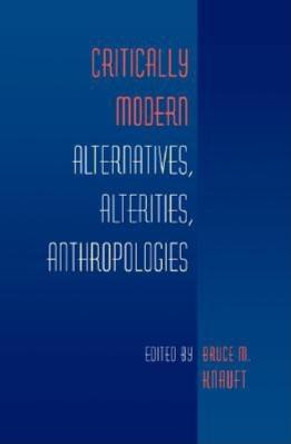Twenty years ago, the Gebusi of the low-land Papua New Guinea rainforest had one of the highest homicide rates in the world. Bruce M. Knauft found then that the killings stemmed from violent scape-goating of suspected sorcerers. But by the time he returned in 1998, homicide rates had plummeted, and Gebusi had largely disavowed vengeance against sorcerers in favor of modern schools, discos, markets, and Christianity. In this book, Knauft explores the Gebusi's encounter with modern institutions and highlights what their experience tells us more generally about the interaction between local peoples and global forces. As desire for material goods grew among Gebusi, Knauft shows that they became more accepting of and subordinated by Christian churches, community schools, and government officials in their attempt to benefit from them - a process Knauft terms "recessive agency." But the Gebusi also respond actively to modernity, creating new forms of feasting, performance, and music that meld traditional practices with Western ones, all of which Knauft documents in this fascinating study.
About the AuthorBruce M. Knauft is Samuel C. Dobbs Professor of Anthropology at Emory University. He is the author of four previous books, most recently Genealogies for the Present in Cultural Anthropology and From Primitive to Postcolonial in Melanesia and Anthropology. His edited volume Critically Modern: Alternatives, Alterities, Anthropologies is currently in press.
Book InformationISBN 9780226446356
Author Bruce M. KnauftFormat Paperback
Page Count 303
Imprint University of Chicago PressPublisher The University of Chicago Press
Weight(grams) 482g
Dimensions(mm) 23mm * 16mm * 3mm





